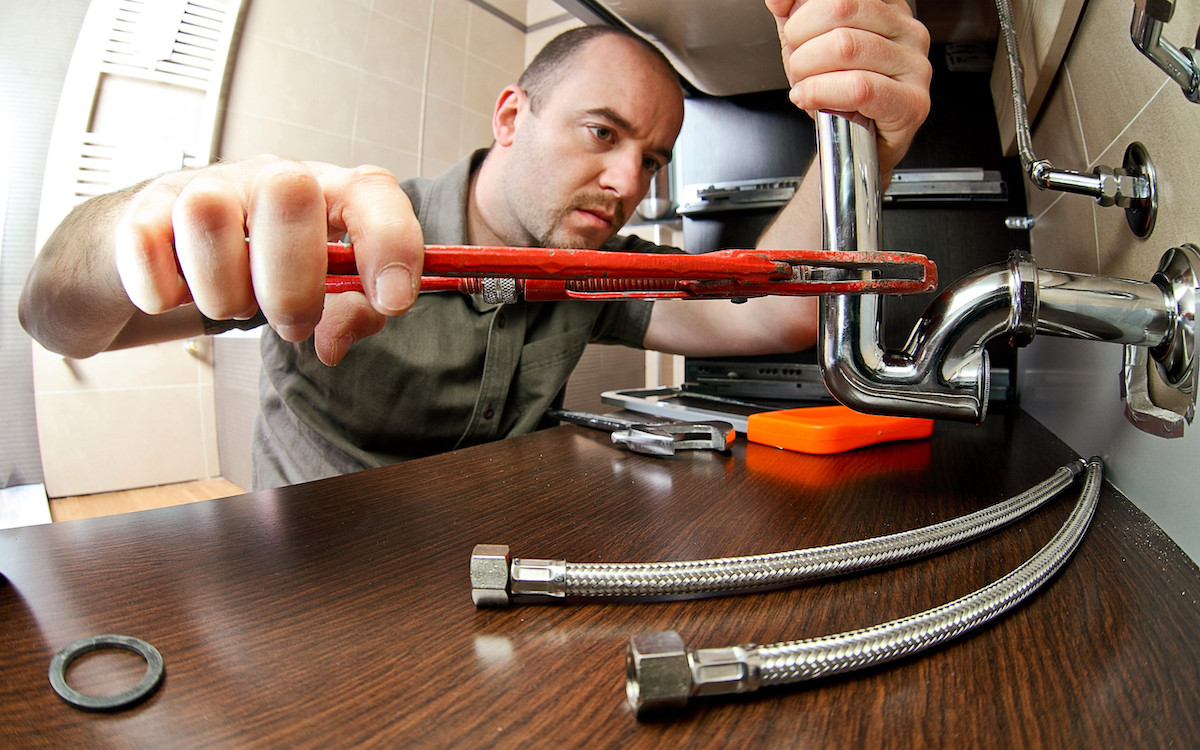A master plumber is an expert in plumbing who has advanced from being a journeyman after rigorous training and experience.
To become a master plumber, one must first work as a journeyman for a considerable period.
This article clarifies the role and responsibilities of a master plumber, providing a clear roadmap for aspiring plumbers aiming to reach this accomplished level in the profession.
So Who is a Master Plumber?
A master plumber is the highest level of expertise in plumbing. They’ve advanced from the rank of a journeyman after rigorous training and practical experience. These experts excel in installing, repairing, and maintaining intricate water systems.
They possess in-depth knowledge of pipe networks and are adept at resolving complex plumbing issues efficiently. Their role extends to overseeing projects and ensuring compliance with regulations.
Essentially, a master plumber is a highly skilled professional trusted to manage demanding plumbing tasks effectively, guaranteeing homes and businesses have reliable and safe water systems.
Master Plumber vs Journeyman – Key Differences Explained
Here are the key differences between a Master Plumber and a Journeyman:
Master Plumber:
- Highest level of expertise in plumbing.
- Requires extensive training, experience, and passing a licensing exam.
- Authorized to run a plumbing business, pull permits, and supervise other plumbers.
- Proficient in complex installations, repairs, and overseeing projects.
Journeyman:
- Mid-level plumbing expertise, between apprentice and master.
- Requires completion of an apprenticeship and passing a journeyman exam.
- Works under the supervision of master plumbers.
- Skilled in basic plumbing tasks, installations, and repairs but doesn’t oversee projects independently.
How Long to Become a Master Plumber?
Becoming a master plumber typically involves years of dedication and experience. The journey begins with an apprenticeship that lasts around four to five years, during which aspiring plumbers learn the fundamentals of the trade through a combination of classroom study and hands-on work under the guidance of experienced professionals.
After completing the apprenticeship, individuals usually work as journeyman plumbers for several more years, gaining practical experience and expertise in various aspects of plumbing. The duration as a journeyman can vary, but it often ranges from two to five years, depending on the specific requirements set by the state or licensing authority.
Once the necessary practical experience is accrued, aspiring master plumbers must pass a licensing exam. Overall, the timeline to become a master plumber can span around eight to ten years or more, encompassing apprenticeship, journeyman work, and the licensure process.
Roles & Responsibilities of a Master Plumber
Roles and responsibilities of a Master Plumber include:
Leadership
Overseeing and managing plumbing projects, directing teams, and ensuring tasks are executed efficiently.
Regulatory Compliance
Ensuring adherence to local building codes, regulations, and safety standards in all plumbing work.
Complex Installations and Repairs
Handling intricate plumbing installations, repairs, and maintenance for residential, commercial, or industrial systems.
Problem-Solving
Troubleshooting and resolving complex plumbing issues with expertise and precision.
Project Oversight
Supervising and inspecting plumbing projects to guarantee quality and compliance with design specifications.
Customer Interaction
Interacting with clients, providing guidance, explaining plumbing issues, and offering solutions.
Training and Guidance
Mentoring and training junior plumbers or apprentices, sharing knowledge and skills to foster their development.
Business Operations
In some cases, managing or owning a plumbing business, handling administrative tasks, estimating costs, and scheduling projects.
Is Master Plumber an Engineer?
A master plumber is not an engineer. While both possess specialized skills, their expertise and educational backgrounds differ. A master plumber focuses on plumbing installation, maintenance, and repair, typically after completing an apprenticeship and gaining practical experience.
In contrast, an engineer, with formal education in engineering disciplines, specializes in designing, planning, and overseeing a broader spectrum of projects, which may include plumbing but extends to various other engineering fields.
Let’s dive into learn more:
Different Expertise
A master plumber and an engineer possess distinct skill sets and expertise.
While a master plumber specializes in the installation, maintenance, and repair of plumbing systems, an engineer focuses on broader aspects of designing and planning various systems, which may include plumbing but extends to other fields like mechanical, electrical, or civil engineering.
Education and Training
The educational paths for master plumbers and engineers differ significantly. Master plumbers typically undergo apprenticeships, gaining hands-on experience and often obtaining a plumbing license.
Engineers, on the other hand, pursue formal education in engineering disciplines, earning a bachelor’s degree or higher and sometimes obtaining professional engineering licenses.
Scope of Work
Master plumbers primarily work on implementing and fixing plumbing systems in homes, businesses, and industrial settings. Engineers engage in planning, designing, and overseeing construction projects, which can encompass a wider range of disciplines beyond plumbing.
Collaboration
In certain instances, master plumbers and engineers might collaborate on projects. Engineers might design plumbing systems, and master plumbers would execute the installation based on these plans, highlighting a complementary relationship between the two professions.
Why Hire a Master Plumber?
Hiring a master plumber offers several advantages:
Expertise: Their extensive training ensures precise and efficient solutions to any plumbing issue.
Legal Compliance: With their deep knowledge of local regulations, master plumbers ensure that all work is code-compliant, avoiding future fines or legal complications.
Safety Assurance: Master plumbers are skilled in managing potentially hazardous situations, such as gas leaks or faulty drainage systems, ensuring the safety of your property.
Insurance Protection: Work performed by a licensed master plumber is often covered by insurance, providing peace of mind for homeowners and business owners alike.
Frequently Asked Questions
What is the highest level of plumber?
The highest level of plumber is a Master Plumber. They have extensive experience, and advanced training, and are licensed to oversee plumbing projects, handle complex installations, and ensure compliance with regulations
Who is a master plumber?
A professional plumber is a trained expert who specializes in installing, repairing, and maintaining plumbing systems. These systems include pipes, fixtures, and other equipment used for water distribution and waste management in homes, businesses, and industrial settings.
Key tasks of a professional plumber include:
- Fixing leaks
- Unclogging drains
- Installing water heaters
- Ensuring plumbing systems meet local building codes and regulations
Professional plumbers undergo extensive training and apprenticeships. They must also pass licensing exams to ensure they are qualified to provide safe and effective plumbing services.
What is the nickname for a plumber?
Plumbers are often nicknamed “pipefitters” or “pipe jockeys” due to their expertise in working with pipes, fittings, and plumbing systems. These nicknames highlight the specialized skills plumbers have in installing, maintaining, and repairing the piping systems that are essential for water supply and drainage.
Final Thoughts
Understanding the significance of a Master Plumber sheds light on the expertise vital for efficient plumbing systems. At Dan Wood Services, in Michigan, we pride ourselves on our team of certified Master Plumbers, ensuring top-notch plumbing solutions.
From intricate installations to meticulous repairs, our experts guarantee reliable and safe water systems for homes and businesses. Trust us for unparalleled professionalism and expertise in plumbing services, where our Master Plumbers excel in making your plumbing worries a thing of the past.




